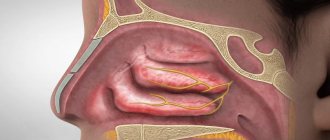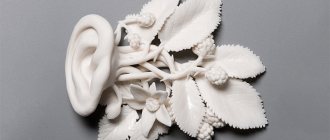Auditory hallucinations are a form of hallucination in which a person may hear different voices and sounds that are not actually there. This condition can occur for a variety of reasons, and it does not always indicate the presence of a mental illness. The reasons for their appearance may be other. But at the same time, this condition in any case requires the attention of specialists and treatment. Treatment for such hallucinations involves identifying the cause of their occurrence. In most cases, this requires treating the cause, not the effect.
Symptoms of auditory hallucinations
Despite the fact that auditory hallucinations can occur for a variety of reasons and have different manifestations, their symptoms are largely similar. This illness is that a person hears voices and sounds that are not really there. But at the same time, he can often sincerely believe in their reality and not understand that all this only seems to him. It is interesting that this phenomenon can sometimes occur not only with all kinds of diseases or painful conditions, but also in some conditions in completely healthy people.
Symptoms of auditory hallucinations include a variety of voices and sounds. It can be human voices, barking dogs, various creaks, rustles, rattles, the roar of a car or other engine, whistles, laughter, the sound of water and much more. At the same time, many people can hear completely understandable phrases or words. Some types of such hallucinations pose virtually no danger to both the patient himself and those around him, while others can cause serious harm to himself or jeopardize public safety.
Professional psychiatrists often divide such hallucinations into true and false. In the presence of true hallucinations, their manifestation seems quite realistic. Therefore, a person has no doubt that these voices and sounds actually exist. And with false hallucinations, the person with whom this phenomenon occurs also doubts the reality of this phenomenon.
Most of these voices and sounds are practically harmless to the patient himself and the people around him. This phenomenon can only complicate the patient’s life. In many cases, it contributes to the disruption of his work and social life, impairs sleep and interferes with the conduct of many usual activities.
And the most dangerous are hallucinations, which are usually called imperative. In this case, the voices that inhabit his head and seem very real may force him to kill someone or himself, steal something, or commit other dangerous or illegal actions. The patient may be forced to drive a car at high speed, jump from great heights, commit suicide, or engage in self-harm. At the same time, he is completely confident in the reality of such voices and phrases, and therefore often, without a shadow of a doubt, commits such dangerous and criminal actions against himself or other people. Such events must be properly distinguished from deliberate actions.
What are auditory hallucinations?
In psychiatry, auditory hallucinations are a disorder in which the patient hears a variety of sounds in the absence of their real source.
However, he is convinced of their truth. It could be the singing of birds, the sound of the wind, the sound of a car engine, but most often it is voices.
The voices can comment on the patient's behavior or talk to each other about topics unrelated to the patient. They can repeat thoughts and confirm a person’s ideas. The most dangerous type of hallucination is commanding voices. The patient lacks criticality and believes everything he hears.
Sounds can be of a different nature, but at the same time, the most characteristic symptom of the disease is voices.
What types of auditory hallucinations are there?
- sarcastically commenting on the patient's behavior;
- communicating with each other;
- confirming ideas and thoughts of the patient;
- imperative (commanding);
- threatening.
Extraneous sounds and noises that a person hears may be the result of a malfunction of the hearing aid. They occur as a side effect when taking medications and during alcohol intoxication. However, the most common and severe variant is hallucinations associated with mental illness.
Identifying the cause of auditory hallucinations determines the treatment strategy for the disease. There are several main groups of causative factors.
Possible reasons
- hearing aid malfunction;
- side effects of medications;
- delirium, alcohol intoxication;
- symptoms of mental illness.
Causes of auditory hallucinations
The causes of auditory hallucinations can be very different. Despite the fact that most often they are a manifestation of various mental illnesses, this phenomenon is also inherent in poisoning with all kinds of psychoactive substances. In addition, hallucinations may indicate other diseases and conditions that are not mental. There are also cases when they appeared in healthy people under certain conditions.
In the modern world, a very common cause of such hallucinations is poisoning of the body with psychotropic substances such as alcohol and various types of drugs. However, such people are not always recognized as drug addicts or alcoholics. In addition, the phenomenon can also occur during ordinary household poisoning with various poisons, food products of poor quality, household chemicals, all kinds of gases, etc.
Hallucinations are common in people with mental illness. Voices and sounds can be heard by patients with schizophrenia, Alzheimer's disease, senile dementia and similar diseases. Similar phenomena can occur with traumatic brain injuries, brain tumors, and certain types of infectious diseases that affect brain activity. In addition, they can result from a strong increase in body temperature and some other painful conditions.
In addition, sometimes completely healthy people can hear various voices that do not really exist. This sometimes happens during severe fatigue, when a person has not slept for several days in a row, and in some individuals, upon awakening, when it is difficult to draw the line between reality and sleep. Sometimes people can react in this way to the death or serious illness of loved ones, violence or other serious psychological shock. Auditory hallucinations can occur in people of all ages, from young children to the elderly.
What diseases can cause hypnopompic hallucinations?
Anxiety and stress disorders . People with anxiety are more susceptible to sleep paralysis. Sleep paralysis is characterized by the inability to move during the semiconscious state of REM, which causes hypnopompic hallucinations.
Bipolar disorder . In this disorder, hallucinations will occur during manic or hypomanic states. These conditions are characterized by elevated mood, decreased sleep, and increased concentrations of stimulating neurotransmitters.
Brain damage . They affect brain activity, reduce information consumption and suppress cognitive functions. Damage to areas of the brain involved in sensory processing (eg, vision, sound, touch, etc.) can lead to hallucinations as a result of damage-induced sensory deprivation.
Depression . Antidepressants are used for depression. These drugs have a powerful effect on neurotransmitter concentrations, leading to both mood changes and hallucinations.
Epilepsy . During studies, hypnopompic hallucinations were observed in people with epilepsy. This happened due to abnormal brain activity. Such visions can be so sophisticated and believable that sometimes they either go unnoticed or are perceived as reality and remain in memory. []
Schizophrenia . People with schizophrenia have abnormally high levels of dopamine, with erratic activity in certain areas of the brain. The brain of a person with schizophrenia may generate hallucinations before waking up as a direct byproduct of the mental illness.
Sleep disorders . Those with a pre-existing sleep disorder (such as narcolepsy) are more likely to report hypnopompic hallucinations. In the past, hallucinations resulting from sleep disturbances were considered a sign of mental illness. Doctors now recognize that visions are abnormal sensory phenomena that result from sleep disturbances. []
Irregular sleep . Constantly changing your sleep patterns as well as waking up means you are out of tune with your circadian rhythm. Misalignment with the circadian rhythm results in changes in brain activation and neurochemistry. This change leads to sleep disturbance or hypnopompic hallucinations.
Taking dietary supplements . Namely: Tryptophan (to increase serotonin) or L-Tyrosine (to increase dopamine). While taking supplements, you may notice changes in your sleep, and at some point you may even hallucinate.
Types of auditory hallucinations
Such hallucinations can be very different. At the same time, they are divided into true and false. The patient can clearly hear different words and phrases, as well as human voices and sounds of wildlife, car sirens, barking dogs, ringing bells and many other sounds.
Professional psychiatrists identify the following types of auditory hallucinations:
- Tinnitus is all kinds of noises like whistling, grinding, crackling, and the like;
- Acoasms are sounds that differ in specificity. These may include dripping water, the sound of the surf, wind, the sound of rain, barking dogs, the noise of cars, the howl of a siren, the ringing of bells and sounds close to them;
- Phonemes - this type of auditory hallucination is often considered the most dangerous. After all, when it appears, the patient can clearly hear certain words and phrases, sometimes spoken by a specific and very real person. In many cases, such illusions can be very dangerous for the one who hears them or for the people around him.
Auditory hallucinations in adolescents
Auditory hallucinations are quite common in adolescents. In many cases, they are caused by all sorts of psychological problems in relationships with parents and peers, difficulties in growing up and puberty, and can also be the result of violence or severe shock.
In addition, traumatic brain injuries are common in adolescence, which can also lead to auditory illusions. They can also be the result of infectious diseases or occur at high temperatures.
Modern schoolchildren, often under the influence of older friends, actively experiment with alcohol or drugs. Often their overdose leads to the formation of various types of hallucinations, including auditory ones.
Also, this phenomenon in a teenager can be a consequence of mental illness.
Auditory hallucinations in children
Auditory hallucinations in children of preschool and primary school age are a very common phenomenon. At this age, they are often caused by fever, various infectious diseases and traumatic brain injuries. But they can also appear due to violence, serious psychological shock as a result of any events they have seen or experienced that are terrible for them. Poisoning with various poisons and toxic substances can also cause a similar phenomenon. In addition, such hallucinations sometimes indicate the presence of a mental illness. But sometimes similar illusions arise in healthy children due to severe fatigue.
Auditory hallucinations after alcohol binge
After an alcoholic binge, all kinds of hallucinations often appear, including auditory ones. Moreover, they are often very dangerous and can lead to very unpleasant or terrible consequences. Indeed, in such a state, the alcoholic experiences various fears, cannot sleep normally and react to the surrounding reality. This phenomenon is caused by exhaustion of the body by prolonged consumption of large quantities of alcoholic beverages, often low-quality or surrogate ones. Many alcoholics in this state may hear distinct voices that tell them to cause significant harm to their own health or commit some other illegal or dangerous act. Therefore, often after a few days after drinking, many drinkers commit suicide, murder, or become guilty of serious road accidents.
How to treat auditory hallucinations
If signs of this phenomenon occur, you should not self-medicate, as it can pose a serious and even fatal danger to the body. Also, you should not hope that hallucinations will go away on their own without medical intervention. Therefore, a person who observes such symptoms in himself or his loved ones should not think about how to treat auditory hallucinations, but should consult a doctor as soon as possible. At the same time, it is not at all necessary that this problem will be treated by a psychiatrist, whom many people are very afraid to contact. After all, such auditory phenomena often occur in diseases or conditions not related to psychiatry. And the very appeal to a psychiatrist does not mean at all that such a person will be declared incompetent and will soon become an outcast from society. Modern psychiatry is very far from what it was in the twentieth century. Now many diseases that were previously considered incurable or socially dangerous are quite amenable to drug therapy.
Causes of olfactory hallucinations
According to statistics, women are more likely than men to experience this disorder. And the younger the patient, the higher the likelihood of its development. In some cases, such a violation is functional in nature, and in others it is organic. In addition, pregnant women often experience false odors in the first trimester. This condition regresses on its own, starting in the second trimester.
Until now, science does not know exactly all the reasons leading to the appearance of olfactory hallucinations. But a number of predisposing factors have been identified, which include the following:
- traumatic brain injuries, especially in those areas where the centers of smell are localized (temporal lobe of the cerebral cortex);
- epilepsy - the feeling of missing odors is often regarded as an indication of an approaching attack;
- brain diseases accompanied by neuronal degeneration - senile dementia, Parkinson's disease, storage pathologies, hereditary disorders;
- long-term smoking experience;
- excessive consumption of alcoholic beverages;
- migraine - usually on the eve of an attack the patient smells burning or spoiled food.
It is also worth noting that olfactory hallucinations appear when the arteries of the brain are damaged. This may be atherosclerotic blockage, thrombosis or microrupture of the vessel. Therefore, the appearance of non-existent signs should be regarded as a reason to immediately visit a doctor. A set of diagnostic procedures will help assess the condition of the brain and take emergency response measures in a timely manner.
How to get rid of auditory hallucinations
In addition, often the answer to the question: “How to get rid of auditory hallucinations?” The psychologist also knows. Contacting him will be advisable if this problem is caused by violence, psychological trauma, severe fear or puberty in adolescents.
If such hallucinations are suspected in children, parents should be able to distinguish this problem from the manifestation of a child’s violent imagination or the child’s retelling of his dreams. And parents of teenagers, if they have sound or other hallucinations, should exclude the abuse of alcohol, drugs and other psychoactive or toxic substances.
Treatment of auditory hallucinations
Treatment of auditory hallucinations is determined by the identified etiology:
- troubleshooting hearing aids;
- correction of drug therapy;
- therapy for alcohol intoxication and alcoholism itself;
- therapy of the underlying disease - senile dementia, Alzheimer's disease, schizophrenia (antipsychotic drugs).
There is no specific treatment for auditory hallucinations. The methods depend on the reason for which the patient developed these symptoms.
If the hearing aid malfunctions, it is enough to replace it with a normally functioning one. If extraneous voices, rustles and sounds are caused by medications, then they must be discontinued or replaced with analogues. This can be done by the doctor who prescribed these drugs.
Various kinds of voices heard by a person during delirium and alcohol intoxication require immediate medical attention. He is hospitalized, undergoes detoxification therapy, and is given infusion solutions to speed up the removal of toxic substances from the body. Tranquilizers and antipsychotics may be used.
With mental illness, a person, in addition to auditory hallucinations, may experience visual and tactile hallucinations. He develops obsessive thoughts and delusional ideas. These alarming symptoms may indicate the presence of schizophrenia, and in older people - senile dementia and Alzheimer's disease. The treatment strategy depends on the identified disease.
Treatment of auditory hallucinations in psychiatry
To treat auditory hallucinations and diseases of the nervous system, the clinic uses the most modern methods of neurometabolic therapy and methods of restorative medicine. Moreover, if a doctor discovers that a person has an acute mental condition, he must be admitted to a hospital.
Psychotherapeutic treatment of auditory hallucinations is aimed at explaining to the patient the nature of the existing disease. Recognizing that voices are a figment of the imagination is the first step toward achieving sustainable remission.
Patients who hear threatening voices or have hallucinations that require murder or suicide require the utmost attention from doctors. You can get additional information about the treatment of auditory hallucinations and make an appointment with a specialist in any convenient way using the contact information on our website.
You can contact the clinic’s specialists by phone in Moscow.








